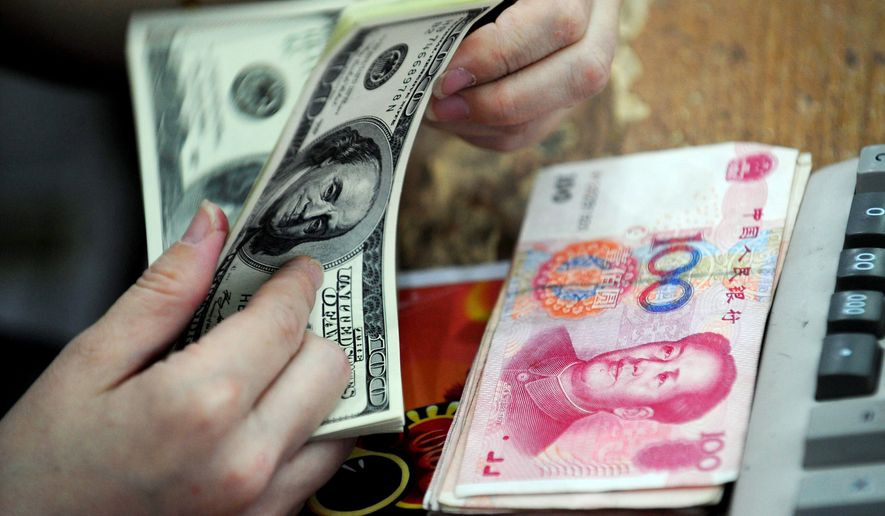In a potentially major move for trade and relations with the U.S., China’s central bank has decided to devalue its currency in a bid to shore up its sluggish economy.
The U.S. has long accused Beijing of manipulating its currency, keeping its value artificially low so as to boost China’s exports and discourage imports. Beijing had been allowing the yuan to rise in recent years but this had slowed China’s explosive growth rate, which has been based largely on exports.
In a statement Tuesday, the People’s Bank of China said it would aim to keep the exchange rate at 6.2298 yuan per dollar, down from 6.1162, and would try to allow the currency depreciate by 2 percent.
The statement said Beijing would calculate its preferred yuan value through a different method, one that pays more attention to earlier trading and which would give the currency a lesser value.
A 2 percent depreciation would put the yuan at its lowest level against the dollar since 2012.
But currency traders began devaluing the yuan even faster than that, and by midday Tuesday in East Asia, the Chinese currency was trading at 6.3080 per dollar.
The decision sent shock waves throughout other Asian currency markets Tuesday, as China’s neighbors may have to let their own currencies devalue to stay competitive with China. The South Korean won and the Australian, Singapore and New Zealand dollars all lost ground against the U.S. greenback.
• Victor Morton can be reached at vmorton@washingtontimes.com.




Please read our comment policy before commenting.